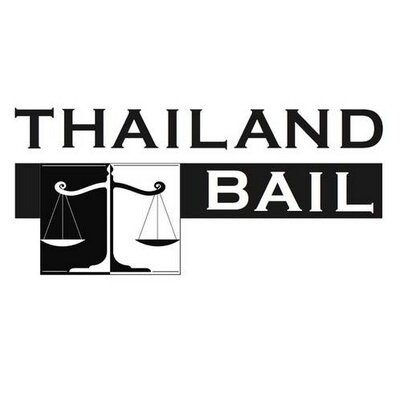ทนายความ การฟ้องคดีแบบกลุ่ม ที่ดีที่สุดใน ประเทศไทย
แบ่งปันความต้องการของคุณกับเรา รับการติดต่อจากสำนักงานกฎหมาย
ฟรี ใช้เวลา 2 นาที
หรือปรับแต่งการค้นหาของคุณโดยเลือกเมือง:
รายชื่อทนายความที่ดีที่สุดใน ประเทศไทย
คู่มือกฎหมายเขียนโดย SIAM LEGAL INTERNATIONAL:
- Defamation Laws in Thailand: Criminal Charges and Civil Suits
- The State of Thailand’s Long-Term Resident (LTR) Visa Program in 2025
- The Penalties Of Not Filing Your Income Tax Return As A Foreigner In Thailand
คู่มือกฎหมายเขียนโดย Smart Legal Solutions:
- Main Legal Measures to Protect Foreign Investment in Thailand
- The importance of the geographical indications for the Thai economy
1. เกี่ยวกับกฎหมายการฟ้องคดีแบบกลุ่มในประเทศไทย
ในประเทศไทยยังไม่มีระบบฟ้องคดีแบบกลุ่มอย่างเป็นทางการเหมือนบางประเทศตะวันตกโดยตรง แต่ศาลและกฎหมายแพ่งมีแนวทางให้ดำเนินการรวมกรณีที่มีข้อถามกฎหมายร่วมกันได้บางกรณี
แนวคิดหลักคือการประหยัดทรัพยากรศาลและช่วยให้ผู้เสียหายจำนวนมากได้รับการพิจารณาอย่างมีประสิทธิภาพ โดยอาศัยหลักการฟ้องคดีร่วมภายใต้กรอบกฎหมายแพ่งและพาณิชย์
“ประเทศไทยยังไม่มีระบบฟ้องคดีแบบกลุ่มอย่างเป็นทางการ แต่สามารถใช้กรอบการพิจารณาร่วมในกรณีที่มีข้อโต้แย้งกฎหมายร่วมกันได้ภายใต้ประมวลกฎหมายวิธีพิจารณาความแพ่ง”
2. ทำไมคุณอาจต้องการทนายความ
การมีทนายความช่วยเหลือจะช่วยคุณวิเคราะห์สถานการณ์เฉพาะและวางกลยุทธ์ที่เหมาะสมในการฟ้องแบบกลุ่ม โดยเฉพาะผู้เสียหายจำนวนมากที่มีข้อสงสัยร่วมกัน
- กรณีโฆษณาเท็จเกี่ยวกับสินค้าหรือบริการ เช่น สินค้าอาหารเสริมหรือเครื่องสำอางที่อ้างสรรพคุณเกินจริง ซึ่งกระทบผู้บริโภคเป็นจำนวนมาก
- กรณีข้อมูลส่วนบุคคลรั่วไหลหรือถูกนำไปใช้อย่างไม่ถูกต้อง ที่ส่งผลกระทบต่อผู้ใช้จำนวนมากในเวลาเดียวกัน
- กรณีสินค้าหรือบริการมีข้อบกพร่องรุนแรงที่ส่งผลต่อหลายคน เช่น รถยนต์หรืออุปกรณ์ไฟฟ้าที่มีความเสี่ยงสูง
- กรณีสัญญาไม่ชอบด้วยกฎหมายหรือเงื่อนไขที่ใช้กับลูกค้าหลายราย ที่ทำให้เกิดความเสียหายพร้อมๆ กัน
- กรณีค่าปรับหรือค่าชดเชยที่เกิดขึ้นกับกลุ่มลูกค้ากว่า 10 คนขึ้นไป แล้วต้องการการเยียวยาร่วมกัน
ทนายความจะช่วยคุณตั้งข้อกล่าวหาที่มีกรอบกฎหมายชัดเจน เตรียมหลักฐาน และประสานงานกับศาลเพื่อเหตุผลร่วมในการฟ้อง
3. ภาพรวมกฎหมายท้องถิ่น
กฎหมายไทยไม่มีบทบัญญัติระบุไว้ชัดเจนว่ามี “ฟ้องคดีแบบกลุ่ม” ในรูปแบบเดียวกับต่างประเทศ แต่มีบทบัญญัติที่เกี่ยวข้องกับกรอบการฟ้องคดีที่มีหลายโจทก์หรือข้อเรียกร้องร่วมกัน
- ประมวลกฎหมายวิธีพิจารณาความแพ่ง (Civil Procedure Code) เป็นกรอบการดำเนินคดีแพ่งทั่วไป ซึ่งมักถูกนำมาใช้อย่างเหมาะสมเมื่อมีโจทก์หลายรายมีความเป็นไปได้ร่วมกันในประเด็นข้อกฎหมายเดียวกัน
- พระราชบัญญัติคุ้มครองผู้บริโภค พ.ศ. 2522 กำกับการร้องเรียนและความคุ้มครองผู้บริโภคในกรณีที่มีผู้บริโภคจำนวนมากได้รับความเสียหายจากสินค้าหรือบริการ
- พระราชบัญญัติคุ้มครองข้อมูลส่วนบุคคล พ.ศ. 2562 (PDPA) ในกรณีที่การละเมิดข้อมูลส่วนบุคคลส่งผลกระทบต่อกลุ่มผู้เสียหายชัดเจน การดำเนินคดีร่วมอาจพิจารณาในกรอบข้อกฎหมายที่เกี่ยวข้อง
ลิงก์อ้างอิงและข้อมูลเพิ่มเติมจากหน่วยงานราชการด้านกฎหมายไทยจะช่วยตรวจสอบสถานะล่าสุดของกฎหมายได้เสมอ
4. คำถามที่พบบ่อย
อะไรคือคดีฟ้องคดีแบบกลุ่มในประเทศไทย และต่างจากคดีทั่วไปอย่างไร
ในไทยไม่มีระบบ “class action” แบบสหรัฐฯ อย่างเป็นทางการ คดีแบบกลุ่มมักเกิดจากกรอบการฟ้องร่วมที่มีข้อโต้แย้งกฎหมายร่วมกัน ภายในกรอบประมวลกฎหมายวิธีพิจารณาความแพ่ง
อย่างไรศาลพิจารณาคดีหมู่ที่มีผู้เสียหายหลายรายได้
ศาลจะพิจารณาเมื่อมีข้อเท็จจริงและข้อหาคดีร่วมชัดเจน ศาลอาจสั่งรวมพิจารณาเฉพาะประเด็นร่วมและดำเนินการทีละส่วน เพื่อความชัดเจนในการพิสูจน์ข้อเท็จจริง
เมื่อไหร่ควรขอทนายความก่อนยื่นฟ้องกรณีคดีแบบกลุ่ม
เมื่อคุณพบว่ามีผู้เสียหายจำนวนมากได้รับความเสียหายจากเหตุการณ์เดียวกัน ควรปรึกษาทนายเพื่อประเมินสิทธิ์และแนวทางการฟ้องร่วม ก่อนยื่นฟ้องอย่างเป็นทางการ
ที่ไหนสามารถยื่นฟ้องแบบกลุ่มได้ และใครมีสิทธิ์ฟ้อง
โดยทั่วไป การฟ้องจะยื่นที่ศาลที่มีเขตอำนาจในกรณีแพ่ง ผู้เสียหายสามารถร่วมกันฟ้องผ่านตัวแทนหรือตัวแทนกลุ่ม ตามเงื่อนไขของศาลและกฎหมายที่เกี่ยวข้อง
ทำไมคดีแบบกลุ่มถึงมีประโยชน์ และมีข้อจำกัดอย่างไร
ประโยชน์คือประหยัดเวลาและทรัพยากร ลดความซ้ำซ้อน ส่วนข้อจำกัดคือศาลอาจพิจารณาคดีร่วมในบางกรณีได้ไม่ครบทุกประเด็นและผู้เสียหายบางรายอาจต้องฟ้องแยกเพื่อสิทธิ์เฉพาะตัว
สามารถระบุค่าใช้จ่ายและค่าทนายในคดีแบบกลุ่มได้อย่างไร
ค่าใช้จ่ายมักขึ้นกับขนาดคดีและขอบเขตงานทนาย ความคุ้มครองค่าใช้จ่ายส่วนใหญ่ขึ้นกับข้อตกลงในสัญญากับทนาย และบางกรณีมีค่าธรรมเนียมล่วงหน้าและค่าใช้จ่ายที่เรียกคืนได้
ควรเตรียมเอกสารอะไรบ้างเมื่อเริ่มฟ้องแบบกลุ่ม
เอกสารหลักคือ หลักฐานการเสียหาย หลักฐานติดต่อผู้เสียหายทั้งหมด และข้อตกลงหรือสัญญาที่เกี่ยวข้อง พร้อมบันทึกเหตุการณ์ที่เกิดขึ้น และพยานที่เกี่ยวข้อง
การฟ้องแบบกลุ่มกับการฟ้องแบบบุคคลแต่ละคนต่างกันอย่างไร
การฟ้องแบบกลุ่มเน้นข้อกฎหมายร่วมและการอ้างสิทธิ์ร่วม ในขณะที่การฟ้องแบบบุคคลแต่ละคนมุ่งประเด็นเฉพาะบุคคลนั้นๆ มากกว่า
ระยะเวลาของคดีแบบกลุ่มมักนานไหม
ระยะเวลาพิจารณาแตกต่างกันตามความซับซ้อนของกรณี ความซ้ำซ้อนของเอกสาร และกระบวนการศาล บางคดีอาจใช้งานหลายเดือนถึงหลายปี
ฉันต้องการตัวแทนหรือผู้แทนกลุ่มต้องมีคุณสมบัติอะไรบ้าง
ตัวแทนกลุ่มมักต้องมีคุณสมบัติตามกฎหมายและมีความสามารถในการดูแลกรณีร่วมกับสมาชิกกลุ่ม รวมถึงสามารถติดต่อสื่อสารกับศาลได้อย่างมีประสิทธิภาพ
ความแตกต่างระหว่างฟ้องแบบกลุ่มและคดีร่วมในประเทศไทยคืออะไร
ฟ้องแบบกลุ่มในรูปแบบทั่วไปยังไม่มีกฎหมายระบุชัดเจนในไทย แต่คดีร่วมมักถูกใช้งานผ่านกรอบวิธีพิจารณาความแพ่งภายใต้ข้อโต้แย้งร่วม ซึ่งต่างกับฟ้องหลายบุคคลในความเข้าใจทั่วไป
รูปแบบการเรียกร้องค่าเสียหายในการฟ้องแบบกลุ่มมีอะไรบ้าง
มักมีรูปแบบการเรียกร้องค่าชดเชยรวม ค่าสินไหมทดแทน และค่าเสียหายที่เกี่ยวข้องกับการละเมิด รวมถึงค่าทนายและค่าใช้จ่ายศาลที่อาจเรียกคืนได้
คดีหยาบคายหรือคดีที่เกี่ยวข้องกับการละเมิดข้อมูลส่วนบุคคลมีกลุ่มความเสียหายได้หรือไม่
ได้ หากมีผู้เสียหายจำนวนมากจากเหตุการณ์เดียวกัน และหลักฐานชี้ชัดต่อการละเมิดข้อมูลส่วนบุคคล ทนายสามารถช่วยประสานรวมกลุ่มเพื่อเรียกร้องเยียวยา
5. ทรัพยากรเพิ่มเติม
ด้านล่างเป็นทรัพยากรที่ใช้งานได้จริงและเป็นทางการสำหรับการฟ้องคดีแบบกลุ่มในประเทศไทย
- ศาลยุติธรรม เว็บไซต์ทางการของศาลเพื่อข้อมูลด้านวิธีพิจารณาความแพ่งและคดีแพ่ง
- กระทรวงยุติธรรม แหล่งข้อมูลนโยบายและเอกสารประกอบการฟ้องคดี
- กรมพัฒนาธุรกิจการค้า (DBD) ข้อมูลเกี่ยวกับผู้ประกอบการและข้อพิพาททางแพ่งที่อาจมีผลกระทบผู้บริโภค
ลิงก์อ้างอิง:
ศาลยุติธรรม: https://www.courts.go.th
กระทรวงยุติธรรม: https://www.moj.go.th
กรมพัฒนาธุรกิจการค้า: https://www.dbd.go.th
6. ขั้นตอนถัดไป
- กำหนดกรอบความเสียหายและกลุ่มผู้เสียหาย ทั้งจำนวนและคุณสมบัติผู้เสียหาย (1-2 สัปดาห์)
- รวบรวมหลักฐานเบื้องต้น เช่น สัญญา ใบเสร็จ ใบรับรองการเสียหาย (2-3 สัปดาห์)
- ค้นหาทนายที่มีประสบการณ์ด้านคดีแบบกลุ่ม ตรวจสอบประวัติและผลงาน (2-4 สัปดาห์)
- ปรึกษาทนายเพื่อประเมินแนวทางและค่าใช้จ่ายในขั้นต้น (1-2 สัปดาห์)
- ดำเนินการเลือกทนายเซ็นสัญญาและเตรียมเอกสารเบื้องต้น (1-3 สัปดาห์)
- ยื่นคำร้องต่อศาล พร้อมระบุประเด็นร่วมและสิทธิเรียกร้อง (2-6 สัปดาห์)
- ติดตามสถานะคดีและสื่อสารกับศาลเป็นระยะ (ขึ้นอยู่กับคดี)
Lawzana ช่วยคุณค้นหาทนายความและสำนักงานกฎหมายที่ดีที่สุด ใน ประเทศไทย ผ่านรายชื่อผู้เชี่ยวชาญด้านกฎหมายที่มีคุณสมบัติเหมาะสมที่คัดสรรและตรวจสอบล่วงหน้า แพลตฟอร์มของเรานำเสนอการจัดอันดับและโปรไฟล์โดยละเอียดของทนายความและสำนักงานกฎหมาย ช่วยให้คุณเปรียบเทียบตามสาขากฎหมาย รวมถึง การฟ้องคดีแบบกลุ่ม ประสบการณ์ และความคิดเห็นของลูกค้า
แต่ละโปรไฟล์ประกอบด้วยคำอธิบายเกี่ยวกับสาขากฎหมายของสำนักงาน รีวิวจากลูกค้า สมาชิกในทีมและหุ้นส่วน ปีที่ก่อตั้ง ภาษาที่พูด ที่ตั้งสำนักงาน ข้อมูลการติดต่อ การมีตัวตนบนโซเชียลมีเดีย และบทความหรือแหล่งข้อมูลที่เผยแพร่ สำนักงานส่วนใหญ่บนแพลตฟอร์มของเราพูดภาษาอังกฤษและมีประสบการณ์ทั้งในเรื่องกฎหมายท้องถิ่นและระหว่างประเทศ
ขอใบเสนอราคาจากสำนักงานกฎหมายชั้นนำ ใน ประเทศไทย — รวดเร็ว ปลอดภัย และไม่ยุ่งยาก
ข้อจำกัดความรับผิดชอบ:
ข้อมูลที่ให้ไว้ในหน้านี้มีวัตถุประสงค์เพื่อเป็นข้อมูลทั่วไปเท่านั้นและไม่ถือเป็นคำแนะนำทางกฎหมาย แม้ว่าเราจะพยายามตรวจสอบความถูกต้องและความเกี่ยวข้องของเนื้อหา แต่ข้อมูลทางกฎหมายอาจเปลี่ยนแปลงได้ตามกาลเวลา และการตีความกฎหมายอาจแตกต่างกันไป คุณควรปรึกษาผู้เชี่ยวชาญด้านกฎหมายที่มีคุณสมบัติเหมาะสมเพื่อขอคำแนะนำเฉพาะสำหรับสถานการณ์ของคุณเสมอ
เราปฏิเสธความรับผิดทั้งหมดสำหรับการกระทำที่ทำหรือไม่ทำตามเนื้อหาในหน้านี้ หากคุณเชื่อว่าข้อมูลใดไม่ถูกต้องหรือล้าสมัย โปรด contact us และเราจะตรวจสอบและแก้ไขตามความเหมาะสม
เรียกดูสำนักงานกฎหมาย การฟ้องคดีแบบกลุ่ม ตามเมืองใน ประเทศไทย
ปรับแต่งการค้นหาของคุณโดยเลือกเมือง












![Legal & Business Consultancy in Chiang Mai [LBC CHIANGMAI]](https://lawzana.com/storage/firms/2674/16209701614886.jpg)




